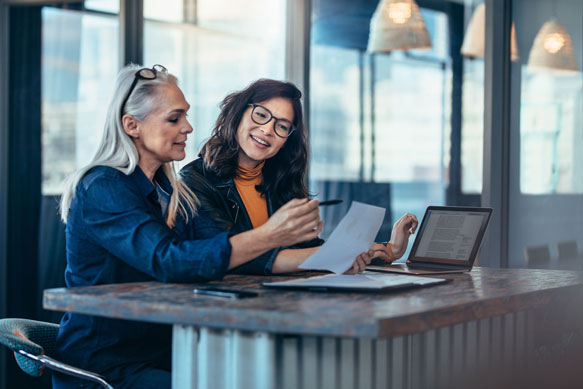From hidden costs to settling into a new community, there's lots to think about, says Vicky Shaw.
Would you up sticks and move away from your area if you were offered better career prospects or a bigger salary? The dilemma of whether to relocate for work or stay put can be tricky to answer – particularly for those who already have strong ties with their local community.
Among employees who have never relocated, 59% of men and 65% of women say the desire to stay near family is the primary reason they’ve stayed put, according to a new survey by jobs website Indeed.co.uk.
On the one hand, there may be the chance of new opportunities opening up, the chance of a pay-boost and better living standards. But on the other, families also need to weigh up how other members of the household may settle into a new life – and how this may also have an impact on the household budget.
Here are some factors you may want to consider when weighing up whether it’s worth relocating for work or not…

1. Can you afford the moving costs?
The cost of moving home can quickly add up to thousands of pounds.
According to research from Lloyds Bank, home movers across the UK may typically need to budget around £12,000 just to cover moving costs.
If you plan to buy a new home, there are expenses to consider such as stamp duty, or in Scotland the land and buildings transaction tax, or in Wales the land transaction tax. There are also estate agent and legal fees to consider, as well as the cost of a removal firm. And if you’re renting, you may need to consider pulling together a bigger deposit.
2. Can you afford the house prices or rents in the area you are thinking of moving to?
You may be getting a pay rise if you relocate, but consider whether this will be swallowed up by a higher mortgage or rental bill every month. If you’re moving to a bigger town or city, the housing costs may be higher if there is stronger demand for properties in these areas.
It may be possible to find cheaper accommodation by finding somewhere to live slightly further afield, but in popular commuting towns property prices may also be high, and the cost of your journey into work could also be higher.
3. What about schools and childcare costs?
Childcare costs can vary hugely depending on where you live. And if you’re currently close to grandparents who are currently helping out with unpaid childcare, the expenses could increase quite dramatically by moving far away. If you or your partner will be getting a bigger salary by moving, the extra childcare costs may be balanced out.
Also bear in mind that house prices in locations near popular and highly-rated schools can often be significantly higher than those in their surrounding areas. For example, recent research from audit firm PwC found that houses within the catchments of the top 10% of England’s primary schools can cost around £27,000 more than those in the wider postcode districts.

4. Will your employer provide you with a relocation package?
Whether it’s your existing employer who is asking you to relocate, or you’re considering going to a new company, you may be able to negotiate a relocation package, particularly if the firm thinks it may help sway your decision in favour of moving.
Ask the company’s HR department whether they can help with expenses such as moving costs, transport and any temporary accommodation you may need.
5. Is working remotely an option?
New technology means it’s easier for many people to work from home at least some of the time now, although this will very much depend on what your job involves.
It may also be possible to stay living where you are but have a longer commute to work. Three-fifths (60%) of men and 59% of women say they are willing to travel for 30-60 minutes to work, if it meant they could avoid relocating, Indeed’s survey also found. But when it came to longer journey times, men were around a third more likely than women to say they would commute for 60-120 minutes in order to avoid relocating.
































